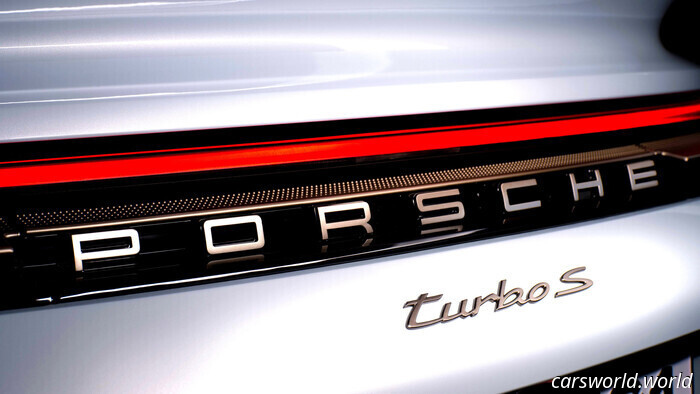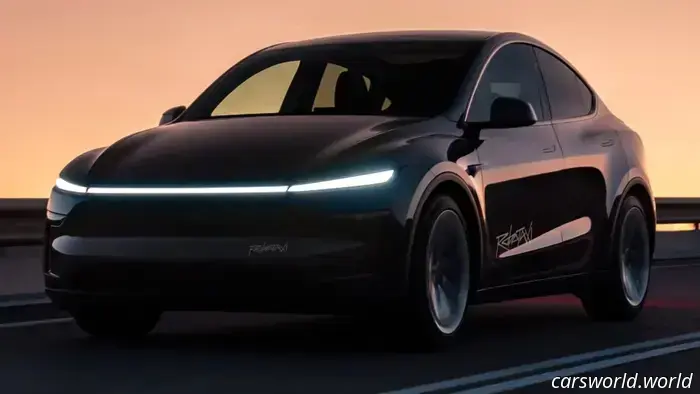
The 2026 Porsche Cayenne Electric is an electric vehicle priced at $111,000, featuring wireless charging capabilities.
Porsche
The latest updates and reviews in the automotive world, no nonsense.
Sign up for our free daily newsletter to receive the most important stories directly to your inbox every weekday.
Porsche has finally unveiled its third electric vehicle, the Cayenne Electric, which has been highly anticipated. This model is not only Porsche's largest EV to date but also its most powerful production car, with the top-tier Cayenne Turbo Electric generating up to 1,139 horsepower delivered to all four wheels. Additionally, it features wireless charging capability.
There is a lot to cover, making it tricky to know where to start. Let’s begin with the battery, which Porsche labels as the “heart” of the Cayenne Electric, and it is integral to all variants. This new 113-kWh battery pack boasts double-sided cooling for enhanced thermal management and supports DC charging speeds of up to 400 kW. Under “ideal conditions,” it can recharge from 10% to 80% in less than 16 minutes—a precise official figure, emphasizing Porsche's attention to detail.
The Cayenne Electric will feature two charge ports: a NACS port for DC charging on the driver's side rear fender and a J1772 port for AC charging on the passenger side. To utilize the wireless charging option, you’ll need the appropriate floor plate. While Porsche provided limited details about this system, such as purchasing information and pricing, they confirmed it operates at a peak of 11 kW, requiring the car to be parked above it to initiate charging.
The Cayenne Electric will typically offer 402 hp during standard driving, increasing to 435 hp with 615 lb-ft of torque when Launch Control is activated. The Turbo variant significantly amplifies this to 844 hp during normal driving and delivers 1,017 hp for 10 seconds under Push-to-Pass, reaching a maximum of 1,139 hp and 1,106 lb-ft with Launch Control. Both models feature all-wheel drive and come equipped with adaptive air suspension alongside Porsche’s traction and active suspension management systems, which is certainly advantageous, especially for the Turbo.
Perhaps even more remarkable than its power output is the Cayenne Electric's ability to recover energy efficiently during braking. Porsche likens its 600 kW recuperative power to that of Formula E race cars, noting that 97 percent of braking during typical driving can be managed solely by the electric motors, bypassing the mechanical brakes. Ceramic composite brakes remain an option for the Turbo.
At this stage, it's worth addressing the Cayenne Electric's design. There's not much to critique; it presents more like a conventional SUV compared to the egg-shaped Macan Electric while still reflecting some design elements from the Taycan with its elongated, low nose.
The lower grille design is certainly intriguing, featuring numerous active flaps. It's not unappealing, and Porsche has effectively highlighted this aspect of the vehicle's design and technology without it being overly ostentatious. The Turbo model emphasizes aerodynamic features further, incorporating movable blades in the rear bumper.
All these elements, coupled with the sleek body shape, enable the Cayenne Electric to achieve a low drag coefficient of 0.25 Cd, which is impressive for an SUV. The Tesla Model X is one of the few with slightly lower drag at 0.24 Cd, yet I would argue that this model has a more appealing design despite the minor trade-off in aerodynamic efficiency.
The Cayenne Electric is approximately 2.1 inches longer than its gasoline counterpart but has a five-inch longer wheelbase, enhancing rear legroom. Up front, there is an abundance of OLED screens, with the unique feature of the main central infotainment display being curved at the bottom. However, rocker switches for temperature and fan speed are available for each front passenger, exemplifying what Porsche refers to as “a careful balance between tactile functionality and digital touchscreens.”
Porsche anticipates starting deliveries of the Cayenne Electric in the U.S. next summer. Typically, for vehicles that are not launching soon, manufacturers tend to withhold pricing details until the official release date. However, for the Cayenne EV, it has already been confirmed that the standard model will start at $111,350, while the Turbo version will be priced at $165,350, both including delivery. The press release emphasizes various powertrain options available for the Cayenne line, indicating Porsche's commitment to ensuring that the introduction of the EV does not affect the gasoline model, which begins at $91,150.
Cayenne Turbo Electric in Mystic Green, regular Cayenne Electric in Vanadium Grey.
Have a tip? Email [email protected]
















Other articles
 The "Ferrarification" of Porsche Led to a $300 Million Lawsuit from Dealers | Carscoops
A lawsuit in Miami alleges that Porsche coerced dealers into establishing exclusive showrooms, revealing significant conflicts within the luxury automobile industry.
The "Ferrarification" of Porsche Led to a $300 Million Lawsuit from Dealers | Carscoops
A lawsuit in Miami alleges that Porsche coerced dealers into establishing exclusive showrooms, revealing significant conflicts within the luxury automobile industry.
 Tesla's Robotaxi Service Authorized in Arizona Lacking In-Car Safety Monitors Despite Accidents: TDS
Tesla has reached the last milestone needed to launch its "self-driving" taxis in a second city.
Tesla's Robotaxi Service Authorized in Arizona Lacking In-Car Safety Monitors Despite Accidents: TDS
Tesla has reached the last milestone needed to launch its "self-driving" taxis in a second city.
The 2026 Porsche Cayenne Electric is an electric vehicle priced at $111,000, featuring wireless charging capabilities.
The Cayenne Electric Turbo provides as much as 1,139 horsepower, making it the strongest vehicle Porsche has ever offered for sale.
